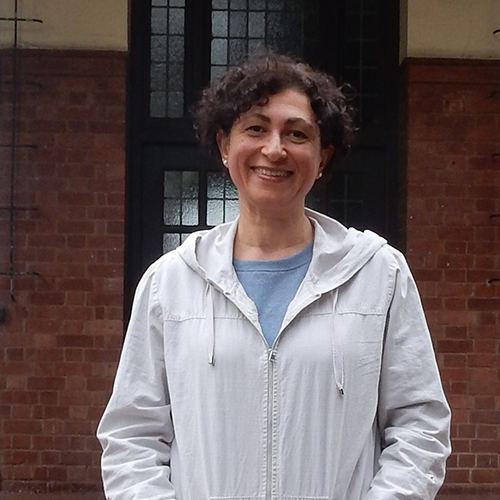
Özlem TASTAN BISHOP
Country (Nationality)
South Africa
Grantee Title
PROJECT: SNPs, Allosteric Modulations, Dynamic Residue Networks: Combined Approaches towards Modern Computational Drug Discovery
Grantee Description
Özlem received her BSc degree in Physics from Boğaziçi University, Istanbul, Turkey. Then she moved to the Department of Molecular Biology and Genetics at the same University for her MSc degree, entitled “The molecular basis of alpha-thalassemia in Turkey: Establishment and ppplication of PCR-based methods”. She obtained her PhD from Max-Planck Institute for Molecular Genetics and Free University, Berlin, Germany in 2003. The title of her PhD thesis is “How lazy are the tRNAs on the ribosome? New insights for the - model”. While doing her PhD, Özlem became interested in structural biology, and during her postdoctoral positions (Texas University, USA; University of Western Cape and University of Pretoria, South Africa) she gained experience in structural bioinformatics as well as structural biology. During her education Özlem received numerous fellowships and awards, including Turkish Government Education Scholarship (Turkey), British Council Research Scholarship (UK), Monbusho Research Student Scholarship (Japan), Deutsche Forschungsgemeinschaft (DFG) PhD fellowship (Germany), NRF Free-Standing Postdoctoral Fellowship (South Africa) and Claude Leon Foundation Postdoctoral Fellowship (South Africa).
In October 2009, Özlem took up a senior lecturer position at Rhodes University, South Africa. She initiated a one-year MSc programme in bioinformatics by coursework and research thesis in 2011, which was the first such programme in Africa, and established Research Unit in Bioinformatics (RUBi) in 2013. Since joining Rhodes University, Özlem has graduated 10 PhD students, of whom she was main supervisor to 8, and 30 MSc students. Currently, Özlem is supervising 18 PhD, 2 MSc and 1 Honours students, as well as mentoring one junior academic staff member and two postdoctoral fellows. She has over 50 peer-reviewed articles in internationally accredited journals including, Science, Briefing in Bioinformatics, Bioinformatics, Human Mutation, Scientific Reports, Biophysical Journal, and Journal of Chemical Information and Modeling.
Özlem’s broad research interest is structural bioinformatics and bioinformatics education. She is a member of international education bodies including ISBC Education committee and Global Organisation for Bioinformatics Learning, Education & Training (GOBLET). Özlem is also honorary member of Golden Key. Özlem was co-founder and the first president of the South African Society for Bioinformatics (SASBi) (September 2012 – October 2014), and mentor to SASBi Student Society (October 2014 – September 2016).
PROJECT: SNPs, Allosteric Modulations, Dynamic Residue Networks: Combined Approaches towards Modern Computational Drug Discovery
Traditional computational drug discovery provides a faster and cheaper way of identifying target specific potential hit compounds than screening them in vitro as a first step. However, it misses a number of important aspects. For instance, continuously emerging resistant strains of pathogens to current drugs present an immense challenge for the eradication of many infectious diseases. The effects of mutations on the function of protein drug targets may lead to drug resistance; these effects should be understood in parallel to the traditional computational approach. Importantly, sometimes these resistant mutations are far from drug binding sites, and can only be analyzed by considering proteins as dynamic networks. Further, it is crucial to identify alternative potential drug targeting sites other than the orthosteric ones, as it is challenging to handle drug selectivity at the active site of an enzyme due to it being highly conserved within the protein family. This research proposes to apply new protocols that have been developed at RUBi combined together with traditional computational drug discovery approach to further improve our understanding in rational drug discovery in the context of tuberculosis and malaria. Additionally, where applicable, we aim to identify novel hits from African natural compounds against these diseases as screening of them may lead to the development of novel pharmaceutics in Africa.
